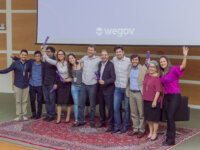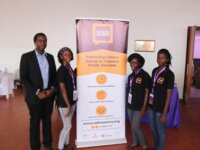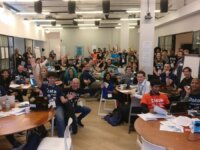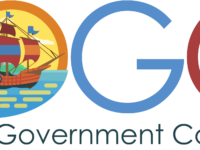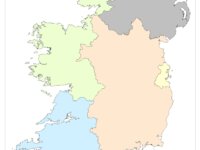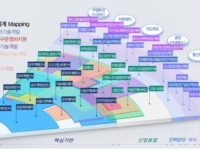HubGov is an interinstitutional program of innovation in Government that has the participation of institution from the three spheres and three powers. Through a learning trail in innovation and intrapreneurship skills, each institution comes up with a complex challenge and at the end of the program presents a solution proposal to this challenge.
Innovation Tag: Methods and Tools
East Africa has an urgent need for innovative accountability mechanisms, as many public services are inefficient and corrupt. SEMA helps to improve the quality of public service delivery, by gathering real-time citizen feedback and presenting this data in digestible formats. We use low-tech tools, such as custom-made hardware devices and interactive voice response technology, that help citizens from all backgrounds to have a voice in evaluating their public services.
Experimentation Works (EW) is a Government-of-Canada initiative to build public servants’ capacity in experimentation skills and practice through a learning-by-doing model that supports and showcases 5 small-scale experiments in the open. EW seeks to generate practical examples of experiments and ensure open access to learning materials, progress updates and results for broad impact. It works by connecting project teams with each other, and with experts in a open-by-default “cohort model."
For policy makers, using indicators such as GDP, HDI or IWI is about trade-offs. What are the limitations of using these indicators, especially in a context riven by challenges related to sustainability and growth? Cantor's World, a multi-player computer-based game designed by Fields of View (FoV) and UNESCO-MGIEP, provides participants a first-hand immersive experience of the tension between economic growth and the country’s available natural and human capitals.
The Office for National Statistics (ONS) Data Science Campus was set up to work at the frontier of data science and Artificial Intelligence (AI), to deliver research with impact and build capability across the UK public sector. We build skills and apply tools, methods and practices; creating insight to improve decision-making for public good. We work with UK and international partners, drawing on their expertise and resources, sharing the benefits of our education and research programs widely.
The Government Digital Service and the Ministry of Housing, Communities and Local Government launched the Local Digital Declaration to support and unite local authorities around a shared understanding of good digital practice.
It is a unique call to action that addresses the legacy IT contracts, isolation of procurement practices and siloed digital projects that have left local government services vulnerable to high delivery costs and low customer satisfaction for the public they serve.
The OGC framework allows governments to work together to build useful tools for us all at no cost. Governments become project managers and private companies pay developers to do the work to spec and publish the cloud infrastructure-as-code online for any other entity to use for free.
We have a successful mobility project with over 80 governments, multiple public-sector entities, and private sector companies to fund and build it, and there are 3 other projects under development.
Climate change requires comprehensive responses at local and regional level which makes local government critical to the delivery of national and international policies. The establishment of four Climate Action Regional Offices (CAROs) as Centres of Excellence based on distinct geographic/topographic characteristics enables them to advise local authorities in their region on climate action strategies ensuring a coordinated response and assisting with the roll-out of national/regional policies at…
The Government of Korea is beginning to implement a new innovation investment model, 'R&D PIE', which leverages big data analytics and machine learning in order to assess disruptive changes in the technology landscape, and to identify overlaps and potential opportunities across the Korean ministries. Through this, the government has a way of identifying missing links in the innovation initiatives, fostering collaboration among agencies, universities, and companies, and solving social problems.
Case Study
Crowdsourcing alternative policy proposals’ impacts on SMEs (small and medium enterprises)
Open and inclusive policy-making builds upon the idea of designing policies by broadening the evidence base. An innovative web-based tool called SME test enables the public (citizens, business entities, economic and other interest groups) to quantify the impact of their alternative policy proposals on SMEs, in addition to substantiating their comments and proposals on a public policy proposal. Despite the tool's ease of use, it enables users to conduct more sophisticated analysis.

